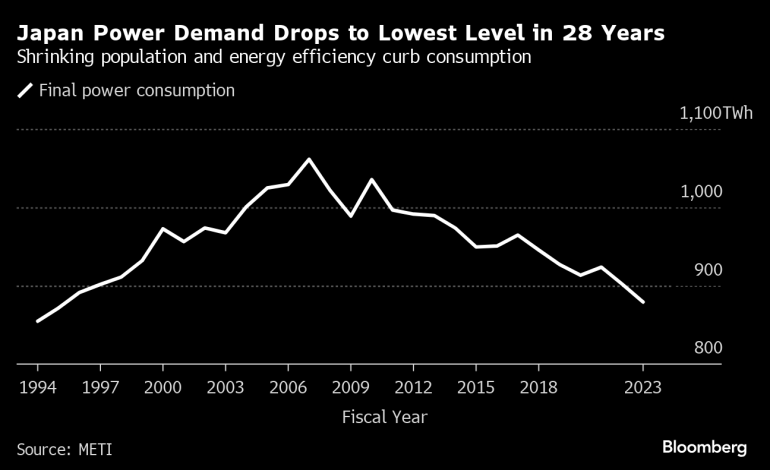Japan’s total electricity generation plunged to its lowest level in over a decade during the fiscal year ending March 2024, falling below even pandemic-era lows, according to government data, Bloomberg reports.
The country generated 985.4 terawatt hours (TWh) of electricity, a 1.6% decrease compared to the previous year and the lowest figure since records began in 2010.
This decline reflects a broader trend of decreasing power demand, driven by Japan’s shrinking population and improving energy efficiency. Final power consumption reached a 28-year low during the same period.
While overall generation fell, the share of non-fossil fuel sources – including hydro, solar, wind, geothermal, biomass, and nuclear – increased to 31.4% of the energy mix, up from 27.4% the previous year. This rise was largely fueled by a nearly 50% increase in nuclear power generation.
However, Japan remains heavily reliant on imported fossil fuels – oil, gas, and coal – for its energy needs, leaving it vulnerable to global price fluctuations and supply chain disruptions. This dependence hinders the country’s efforts to transition to cleaner energy sources.
The government aims to increase the share of renewable energy to 36-38% and nuclear power to 20-22% by 2030. The recent figures, while showing progress in non-fossil fuel generation, highlight the significant challenges Japan faces in achieving these ambitious targets and reducing its reliance on imported fossil fuels.









